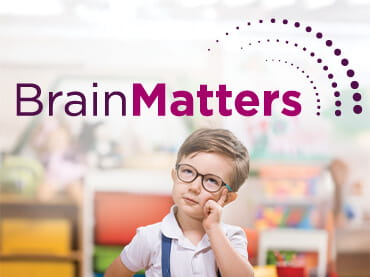- Find a Provider
- Locations
-
Services
- Specialties and Services
- See All Services
Specialties and ServicesBehavioral Health Care Coordination Check In Faster COVID-19 Vaccine Dermatology Driver’s Physical Express Care Flu Vaccine Services Fluoride VarnishLactation Consulting Newborn Care Nutrition Services Online Scheduling Patient Portals Primary Care Medical Home ImPACT® Testing ResearchSame-day Sick Appointments Sports Physicals Substance Use Education Teen Resources Transition to Adulthood Video Visits Walk-in Services Weight Management - Health Resources
-
About Us
- About UPMC CCP
- Patient Resources
About UPMC Children's Community Pediatrics
Why Teaching Family Values Matters for Your Child’s Brain Health
In today’s fast-paced world, teaching kids right from wrong can feel like shouting into the wind. But here’s the good news: When you take time to teach and model family values, you’re not just shaping your child’s character—you’re actively supporting their brain development.
The Brain Behind the Behavior
Children's brains are constantly growing and rewiring. The parts of the brain responsible for decision-making, emotional regulation, empathy, and impulse control—including the prefrontal cortex—don’t fully mature until their mid-20s. That means kids rely heavily on what they’re taught at home to guide how they think, act, and respond to the world. This is where family values come in.
What Are Family Values?
Family values are the guiding principles that shape how your family treats others, makes decisions, and navigates challenges. Whatever your family believes in, talking about those values and living them out gives kids a framework for healthy thinking and behavior. Here are a few values to consider:
- Love – You know what they say… “love makes the world go ‘round.” Teach your child to love thy neighbor regardless of race, religion or sexual orientation. It is more important than ever to accept people as they are.
- Consideration – Teach your child to consider the feelings of others. Maybe your child is a bit outspoken at times. Explain to them that not everyone has the same thought process, and some may take words and actions more harshly than others.
- Honesty – The act of being honest goes a long way. Teach your child to always be honest, even when they’ve done wrong. It is better to admit to our faults and move past them than to carry guilt.
- Forgiveness – Unfortunately, life involves many challenges and disappointments. Explain to your child that human beings aren’t perfect and we all make mistakes. It’s important to hear others out and to forgive them after they’ve done wrong.
- Perseverance – Remind your child that the things they want will not always be handed to them. In life, you have to work towards what you want to accomplish. Some things take more time and effort than others. Explain the importance of working hard and resisting the urge to give up when the going gets tough.
After talking to your child about these values and others that are important to your family, invite them to add their own ideas to the list. By setting a positive example, your child will exude positivity and will likely attract like-minded friends as they continue to learn and grow.
Values = Brain Training
Think of family values as mental training wheels. When you consistently teach and reinforce them, your child’s brain begins to make connections between thoughts, feelings, and actions.
Over time, values training helps:
- Strengthen emotional regulation – Kids learn to pause, think, and respond (instead of reacting).
- Promote empathy and understanding – Values like respect and kindness help children see beyond themselves.
- Support good decision-making – Clear expectations and modeled behaviors guide children when they face peer pressure or tricky situations.
- Lower stress and anxiety – A strong sense of belonging and purpose can protect mental health during uncertain times.
How to Teach Values in Everyday Life
You don’t need a formal lesson plan. Teaching values happens in small, everyday moments:
- Talk it out – Share stories, ask questions, and explain why your family believes what it does.
- Model the behavior – Kids watch how you treat others, handle stress, and resolve conflict.
- Praise the positive – Celebrate when your child shows kindness, patience, or honesty.
- Create rituals – Simple practices like family dinners, volunteering together, or gratitude journaling build connection and reinforce your values.
It’s Not About Perfection—It’s About Presence
Raising emotionally healthy kids isn’t about getting it right 100% of the time. It’s about showing up, being consistent, and giving your child a safe place to grow.
When children know who they are and what they stand for, they’re better equipped to handle the ups and downs of life—and their brains are better wired for resilience, empathy, and confidence.
Guidance for Growing Minds
At UPMC Children’s Community Pediatrics, we’re passionate about helping families understand the incredible journey of brain development. That’s why we created Brain Matters—a program offering expert guidance, parenting resources, and tools to support your child’s brain health from infancy through the teen years.
Explore Brain Matters today.





